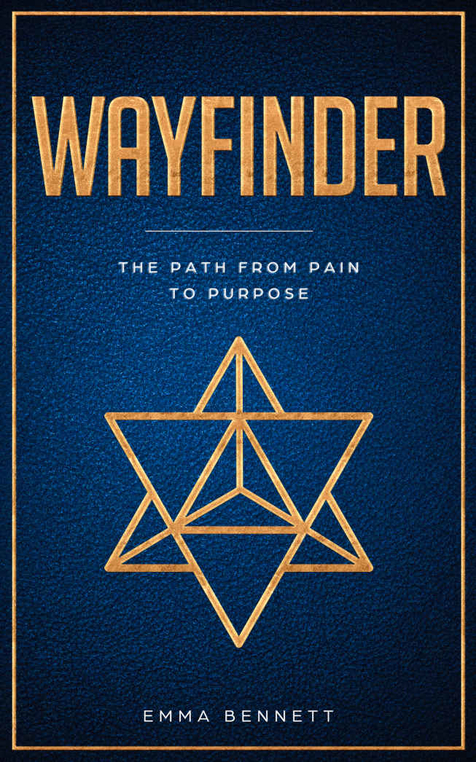Emma Bennett offers valuable insight and access to information about self-enlightenment and spiritual growth in her new book Wayfinder: The Path from Pain to Purpose.
Crossing boundaries into numerous genres, from memoir and philosophy to new-age spirituality and self-help, this book is compelling, challenging, and painful, at times, particularly for those who have experienced trauma of their own. Fortunately, Bennett is a sensitive, thoughtful, and confident writer, with a clear desire to help others change their lives, or at least their mindset.
Unpacking the apparent conflict between “sacred” and “logical,” and combining spiritual ideas with science and reason, this book is far from the standard self-help or spiritual manifesto. Bennett’s powerful lived experience as a young adult, and her stunning story of personal growth over the past six years, following a traumatic brain injury, provide her with authenticity and authority as an expert in overcoming hardship.
Broken up into three main sections, the chapters are well-planned and cumulative in their ideas, which are interspersed with personal anecdotes, parable-like examples, and practical tools individuals can apply in their self-improvement journey. Explaining and dissecting the systems of power that are in place across the world related to gender, race, class, and religion, Bennett urges readers to step out of these old paradigms, to be gentle with oneself, and to never sell yourself short on potential. The content is both starkly honest and endlessly hopeful, towing a line of pragmatism and realism vs. faith and optimism.
Bennett blends lessons she has learned from across the world, from a disparate array of secondary characters and quoted thinkers. Many of these authors write about higher consciousness or co-creating a collective reality, often wrapped in esoteric and mystical verbiage, and Bennett does have moments of very heady language herself. While this is certainly a memoir, there are also more detailed sections and academic passages about everything from neuroscience and Enneagrams to meditation and auric fields.
For those not well-versed in mystical arts or abstract visionary speech, some of the points being made may be confusing, so this is not necessarily a book for beginners, despite the author’s claim of precisely that in the first few pages. The lack of substantive citations for some of the bolder claims is also noticeable, as some of the ideas and theories are on the fringes of provable science.
That said, the book flows well between personal confessions and well-crafted arguments about energy, religion, and the potential that exists within every cell of our bodies. Manifestation, astrology, re-architecting your reality, and changing your energetic course in life are just a few of the complex subjects Emma Bennett explores, and by and large she does a good job of weaving seemingly disparate ideas together into a cohesive whole.
An empowering and unexpectedly captivating read, Wayfinder sets itself apart from other books on these subjects by being both optimistic and realistic, while covering a uniquely diverse array of ideas, for a work of self-help that is at once a fascinating philosophical resource and effective guidebook.
Book Links
STAR RATING
Design
Content
Editing
Get an Editorial Review | Get Amazon Sales & Reviews | Get Edited | Get Beta Readers | Enter the SPR Book Awards | Other Marketing Services























Leave A Comment